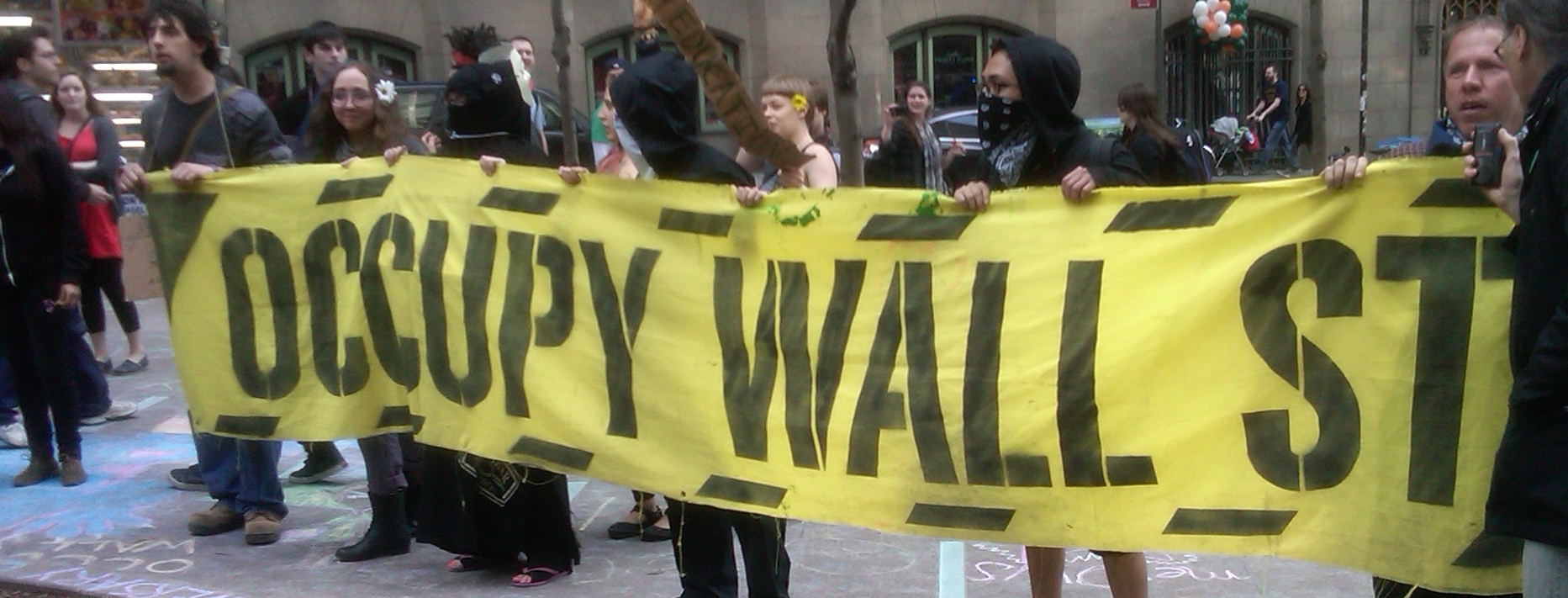Policing the Occupy Movement

About the Project
Inspired by the Arab Spring protests in the Middle East and North Africa, Occupy Wall Street (OWS) emerged in September 2011 in New York City’s Zuccotti Park. OWS brought together a diverse group of protesters concerned about issues like economic inequality, corporate power and greed, tax breaks for the wealthy, and unhealthily cozy relationships between governments and corporations. While often criticized for lacking a detailed platform, the Occupy movement focused most of its discontent against the wealthiest 1% of Americans and rallied around the notion of achieving justice for the remaining 99%. Fueled by social networking technologies, the Occupy movement spread quickly throughout the U.S. Protesters established encampments in many communities and held large and often disruptive protests against a variety of corporate entities, political events, and unpopular government decisions.
Though protesters in most Occupy sites have been evicted from the encampments that initially defined the movement, Occupy is currently regrouping and developing a host of new strategies and tactics. The Occupy movement has challenged American police, highlighting both their will and capacity to preserve protesters’ Constitutional rights while at the same time upholding public order and safety. Dozens of well-publicized clashes between police and protesters, as well as mass arrests at some Occupy events, have led to intense criticism of the police. Early research has found substantial deficits in perceived police legitimacy among protesters. Lawsuits related to the Occupy movement have been filed against police in many communities for violating protesters’ civil rights.
This project examines the policing of the Occupy movement in several American cities. It includes two phases of research. The first phase was a self-funded survey of Occupy protesters project carried out by Professor Maguire and his research team from February to June of 2012 in New York, Washington (DC), Oakland (CA), and Houston (TX). The second phase, funded by the U.S. Justice Department's COPS Office, involves a detailed study of the police response to the Occupy movement in eight American cities. This second phase will result in a guidebook for police agencies on the role of community policing in responding to protests.
Acknowledgments
We are grateful to Occupy protesters in Houston, New York, Oakland, and Washington for sharing their perspectives on the police response to the Occupy movement. We are also grateful to the U.S. Department of Justice's COPS Office for funding our forthcoming examination of the police response to the Occupy movement in eight American cities.
